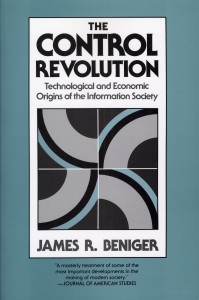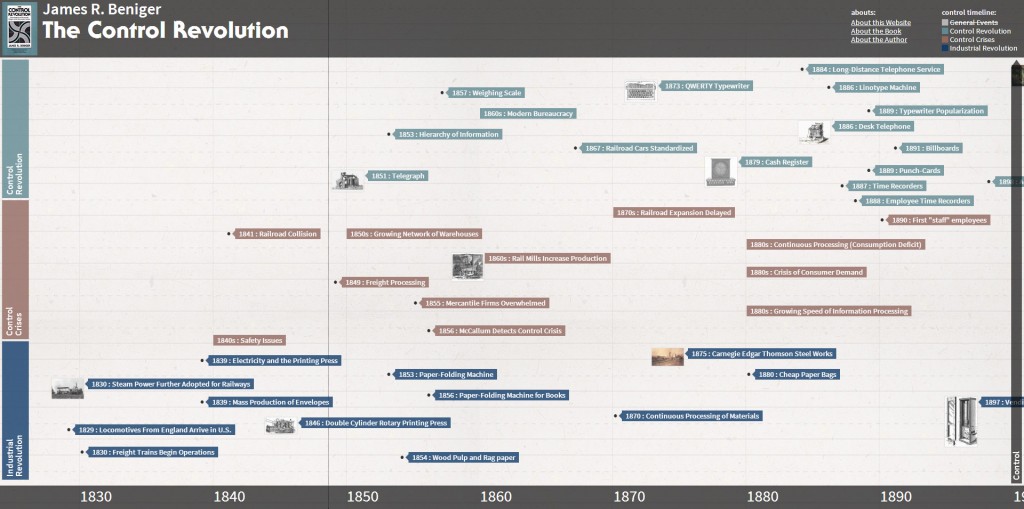[Wild Card Symposium] The Control Revolution
— Alain Otjens, Daan Smith, Richard Zimmerman and Seah Kim
For the Wild Card Symposium of 2012 New Media Theories, we created the interactive timeline website, The Control Revolution. To create exposure for this hidden classic of Beniger, we also created wiki pages for the book ‘The Control Revolution: Technological and Economic Origins of the Information Society’ and the author ‘James R. Beniger’ (as of 1 November 2012, our wiki pages are still waiting for validation). By doing so, we aimed to create a map for the book on one hand and put the book on the map on the other.
 This book, published in 1986, has been a cornerstone of communication theory. However, it has attracted less attention in communication studies despite its relevance throughout time.
This book, published in 1986, has been a cornerstone of communication theory. However, it has attracted less attention in communication studies despite its relevance throughout time.
In this book, as the title suggests, Beniger studied the origins of the Information Society with two main points; first, the information society is rooted in a long history revolving around the concept of “control revolution” which is the term coined by himself; second, this control revolution is unabated till today.
Before him, the prevailing view towards the information society was to understand it as the secondary effect of the development of particular technology, at particular point of time (for example, WWII or TV commercialization, etc.).
But his extensive research on historical statistics and data, mainly in the United States context, proved that the information age is neither a recent phenomenon nor a particular event in time. Rather, it grew out of a crisis of control in transportation and manufacturing during the 19th century industrial revolution and it has developed in response to this lack of control, bringing new technological and bureaucratic innovations, mainly for processing and controlling information. This dynamics between information processing and control is the main impetus of societal transformations towards the Information Society today. And this is what Beniger refers to as control revolution.
The control revolution persists because the resolution of control crisis continuously brings up new crises in turn. For example, the introduction of new technology to the factory improves the productivity on one hand, but introduces a new set of problems requiring more and more information processing, thus more control. This progressive layering of control levels, with resulting increases in the total amount of information processing and communication, makes Beniger’s concept of control revolution still valid today.
Based on Beniger’s argument, we created the interactive website with an attempt to illustrate the dynamics of control revolution. An interactive environment is offered to the user where the timeline, based off Beniger’s events illustrated in the book, can be explored and put into context visually. We also hope that future students can benefit from our website.
Visit our website now and find out more!!
